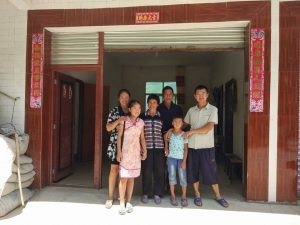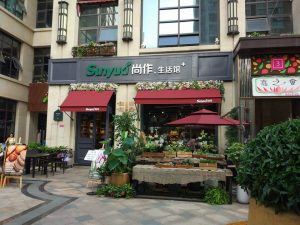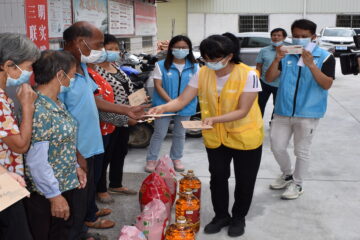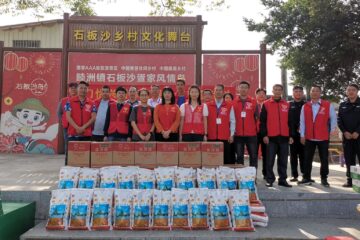E-commerce project for small-hold farmers
Mercy Corps E-commerce for small-hold farmers
ORFL partnered with Mercy Corps to carry out an e-commerce project for small-hold farmers in Ya’an and Pian Ma and Da Ying. This project started in March 2016 and aimed to give the farmers and their communities skills to; set up and design online stores, create promotional material and packaging, calculate costing and profit. Even though this project will in a sense be tied up in October 2016, the following will give insight into what has been happened so far.
Cherry farms
Mercy Corps worked with a Cherry Co-operative consisting of around 180 farmers who effect 800 families. With the help of Mercy Corps this Cherry farm co-operative is now able to sell 20% of their products via e-commerce. The cherry farmers want to open up on more platforms. With mercy corps help, the farmers were able to improve their connection (in terms of selling) with the centre of Chengdu. They now have established drop off points for the cherries for their customers to come pick up.
Even though they are able to sell 20% of their produce on e-commerce, they are still struggling with branding and trust issues with the customer. They had a hail storm this season while the cherries were growing, resulting in their cherries growing with ugly marks (even though they are perfectly edible). If they ship this to their customer, their customer will rate them badly on taobao which decreases their rating and discourages future customers from buying their goods. The farmers also now need to develop the packaging, marketing advertisements and they don’t have the skill to do this. This is another problem the co-operatives face, retaining and finding talent. A lot of the young people leave the village.
On the plus side, Mercy Corps was able to train two young people who we met in the village. They learned how to do the costing so they could figure out what price to sell the produce at for a profit, they were also trained to handle all the e-commerce. Others who help this co-operative with their e-commerce and selling in Chengdu are the villager’s children who live and study in Chengdu.
Walnut farms
Mercy Corps works with around 200 farmers in Ping Ma village. Something else about Ping Ma village is that 90% of the families have walnut trees. The main income of this village comes from their once a year walnut harvest. These walnuts are grown without fertilizers and without pesticides.
Mercy Corps was able to train this lady to be the central connection. She provides wifi and takes care of the e-commerce. When she sells to the middleman she receives 8RMB per half KG of walnuts but if she sells on taobao the minimum she will receive is 10RMB.
She is happy that Mercy Corps gave her the tools to have another way to sell her Walnuts. Mercy Corps has also provided her with links to Yuan Tong. They provide the selling platform, you are the supplier and they send you orders.
In order to sell to Yuan Tong, they need to be able to scale up.
Chicken farm
In Da Ying Mercy Corps linked up 10 farmers, meaning the 10 families effected put their chickens together and sold 1500 chickens collectively. By selling together, they were able to overcome the difficulty of transporting small numbers of chicken into the near by city. Now they were able to send many making it  worthwhile. Standing together gave them more scale and supplier power, since they were all together they could set the price more easily. The photo on the right shows the family who started the chicken working group.
worthwhile. Standing together gave them more scale and supplier power, since they were all together they could set the price more easily. The photo on the right shows the family who started the chicken working group.
Mercy Corps mainly got the farmers to link together to crate a chicken working group and start communicating with each other. In that area there were many farmers who lived in poverty selling low profit crops such as potatoes and corn. However, when they sold it as Chicken feed they were able to get a higher return on it. This benefited both the poor farmers and the chicken farmers. Having local grown organic cheap food.
 Since they have built a good system of raising these chicken and a good supply chain (food and transportation). Mercy Corps wanted them to reach high value customers. Mercy Corps was able to create deal with Sunyaki. Sunyaki agreed to buy 500 chickens from these farmers. These chicken were a smaller different type however. The farmers were not willing to take the risk on this different variety of chicken therefore Mercy Corps took half the risk and bought 250 of the 500 chicken. Sunyaki is an organic, high quality supermarket chain, shown in the photo on the left hand side. For this first time trial, Sunyaki as part of their social responsibility initiative, is going to advertise these products for free. This connection, if the farmers are able to continue it on, offers a good link that capitalises on their strengths which is the chickens they raise have lots of room to move and are fed organic food. Although this is a start, this is only one consumer, giving them too much buyer power. In the future, Mercy Corps needs to help the chicken co-operative brand themselves.
Since they have built a good system of raising these chicken and a good supply chain (food and transportation). Mercy Corps wanted them to reach high value customers. Mercy Corps was able to create deal with Sunyaki. Sunyaki agreed to buy 500 chickens from these farmers. These chicken were a smaller different type however. The farmers were not willing to take the risk on this different variety of chicken therefore Mercy Corps took half the risk and bought 250 of the 500 chicken. Sunyaki is an organic, high quality supermarket chain, shown in the photo on the left hand side. For this first time trial, Sunyaki as part of their social responsibility initiative, is going to advertise these products for free. This connection, if the farmers are able to continue it on, offers a good link that capitalises on their strengths which is the chickens they raise have lots of room to move and are fed organic food. Although this is a start, this is only one consumer, giving them too much buyer power. In the future, Mercy Corps needs to help the chicken co-operative brand themselves.
Overall it is great Mercy Corps was able to train different people and provide tools that allow farmers to sell through a different alternative channel. It gives the farmers more choice and opportunity. Mercy Corps also has given these farmers important links to either; companies, people, or buyers. Mercy Corps have also helped teach farmers or their children how to do costing so they are able to see their margins, input costs vs outputs. Knowing their supply chain will help them in the future and hopefully allow them to cut some of their input costs. It is great they were able to teach 11 young people from ages ranging from 15-40 the e-commerce skills and tools. The only problem with this is that these young people may leave the village for university etc. Mercy Corps was also able to get these young people to create a network amongst themselves, but as the Cherry farmer co-operative leader pointed out, they need more access to people (labour) who can do this for them.


